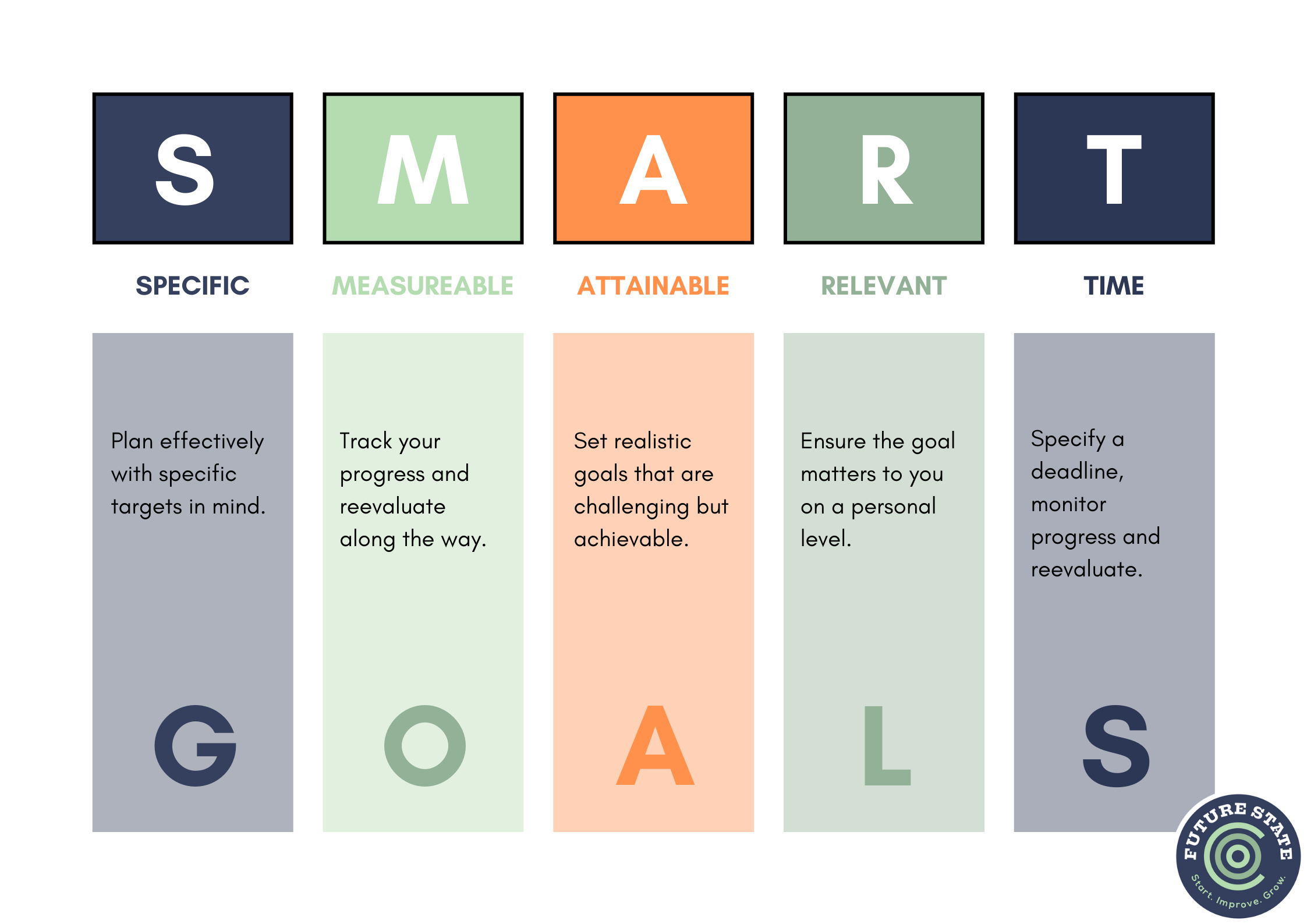Turning the Invisible into the Visible: The Undeniable Importance of Goal-Setting
One of the questions I get asked most often is, ‘Do I really need to set specific goals, or is it enough to just have a general idea of where I’d like to end up?’
Short answer: ABSOLUTELY.
Longer answer: In both my personal and professional experiences, just about everything can be traced back to goal-setting. Think about it. Whether we’re talking about our businesses, our bank accounts, our relationships, our health, our hobbies...Whether we realize it or not, it’s human nature to approach all of these areas from the same place: with an end ‘result’ in mind. Maybe it’s a number. Maybe it’s a feeling. Maybe it’s an award or a destination.
Regardless, we can’t get to the ‘result’ without first determining our starting point, the steps needed to achieve the goal and why it matters in the first place.
I really think Tony Robbins said it best, “Setting goals is the first step in turning the invisible into the visible.”
GETTING CLEAR ON YOUR GOALS
Let’s begin where we left off last month, talking all about the importance of core values, vision and alignment. Why? Because that’s exactly where you should begin when setting your goals, both personally and professionally. It’s only when we get crystal clear on WHO we are and what drives us RIGHT NOW (as opposed to last week, last year, of 10 years ago when we first started our business) that we can fully understand where we are and clearly picture where we’re heading.
As the great Stephen Covey once said, “We must begin with the end in mind.”
When setting goals for myself, I like to start with the big picture- the ‘10,000-foot aerial view,’ if you will, then work backward from there, asking myself questions like:
What’s my WHY?
What motivates me TODAY?
What is my current definition of success?
How can I align that definition with my current practices, beliefs and behaviors?
Do my current practices and patterns move me closer toward my long-term goals? And if not, what shifts can I make so they do?
Here’s the thing: we can’t operationalize our goals without first becoming aware of the present because ultimately, we don’t grow for growth’s sake. We grow towards our purpose.
GOAL SETTING 101
Once you’ve done the deep dive and gotten the clarity you need about yourself and your starting point, it’s time to take ACTION. Yes, it can be overwhelming at first, especially if you’re like many business leaders, myself included, who don’t know anything other than lofty, high-achieving goals.
Have no fear; that’s why we’re breaking it down right here. Have you ever heard the saying, a goal is simply a dream with a deadline? That makes it seem pretty simple, right? That’s because it is.
Familiarize yourself with the foundation of SMART goals. This goes back to that whole, ‘we can only manage what we measure’ idea and this is a quick, easy template to use when setting goals for yourself. ANY goal you set, regardless of magnitude, impact, context or timeline should be:
Specific: Answer the Five Ws (who, what, when, where and why)
Measurable: So you can track your progress (ie. how many, how much, how long?)
Achievable: Goals should challenge us, but always be realistic.
Relevant: Your success will depend on setting a goal that matters to YOU.
Time-Bound: When do you intend to achieve your goal? What’s the deadline?
Now to the other biggest piece of the puzzle when it comes to setting your goals. It’s important to think of your goals the way you would a gourmet meal preparation. They aren’t a hodgepodge of ingredients you throw in the CrockPot and forget about until the end of the day. They are all the pots and pans you have on your stovetop that require you to monitor, to stir, to remove from heat or to turn up the burner.
In other words, your goals- just like you and your business- require constant evaluation and revision.
We don’t figure out who we are by simply stating, ‘This is who I am.’ On the contrary, we figure things out by process of elimination, by trial-and-error. So don’t ever be afraid to eliminate items completely if you discover that they’re no longer working or no longer serving you. There’s no shame in pivoting.
WHY GOAL SETTING WORKS
Goals trigger behaviors by motivating and inspiring us to take action toward achieving them. Think about it: when we feel adrift or aimless, it often translates into cycles of what I like to call, ‘hamster-wheeling,’ which usually leads to decreased productivity and revenue, not to mention an underlying feeling of misalignment.
Goals guide us and increase our focus by naturally encouraging us to take action and shift behaviors toward achieving that goal. If we don’t know where to focus, then we can’t figure out how or where to expend our energy the most efficiently.
Goals help us sustain momentum, no matter how big or small. When we see progress being made, it only makes us more motivated to continue.
Goals help us align our focus. Without them, how do we know what we’re supposed to be doing every day? Anytime that we’re working toward a goal, it’s an opportunity for self-awareness and observation:
What steps am I taking OR not taking?
What behaviors or patterns am I seeing in myself that are preventing me from moving forward? Which ones ARE propelling me in the right direction?
What can I do TODAY to move me closer to my goal TOMORROW?
Setting goals builds character. Plain and simple: When we achieve our goals, we succeed at something for which we’ve worked hard. It not only builds our self-confidence, but our character, too. And that’s something to celebrate!
One of the most rewarding parts of my job as a Fractional COO is to not only help business leaders get clear on who they are and what they want, but to work alongside them, actively taking the steps necessary to achieve their goals, whatever they might be.
In the last year alone, I’ve worked with three different CEOs, all with completely different goals for their companies. One was in a season of financial growth. One had already achieved the growth and was working toward working less so that he could have more time with his family. And the third was all about increasing his impact in the community.
The one thing they all had in common? Goals. Concrete, measurable, tangible, GOALS. This not only helped to ensure their success, but ours together as a team.
I’ll leave you with another expert favorite of mind: “You can’t manage what you don’t measure. And you can’t improve what you don’t manage.” Start with Goal Setting.


